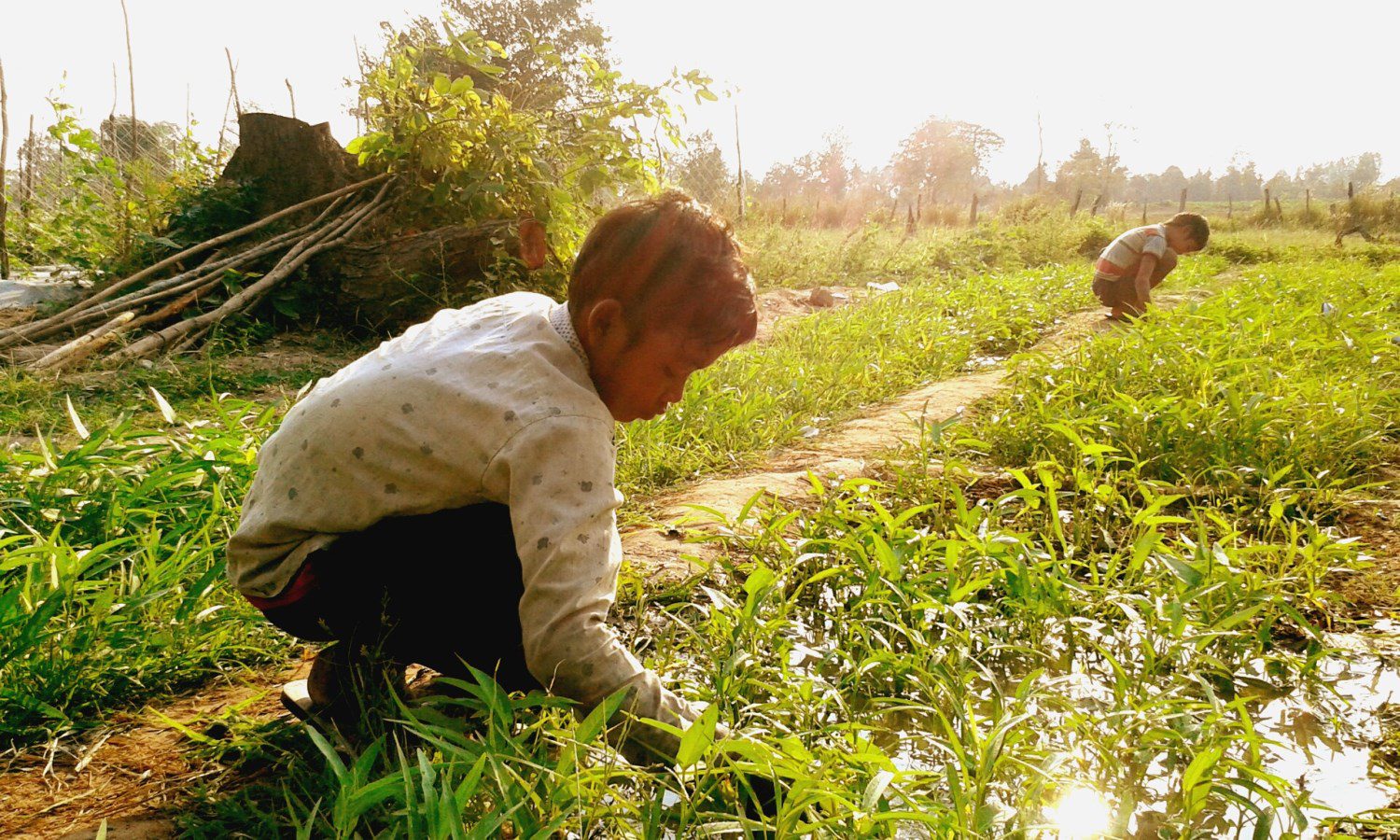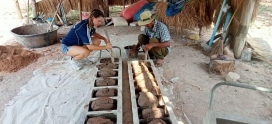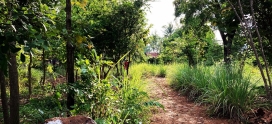Trials and Trellises
It is coming up to three years since Green Shoots Foundation held their first teacher training, or Training of Trainers session, in Samrong town, Odar Meanchay Province NW Cambodia. Part of their Agriculture Skills in Public Schools (ASPUS) Project.
I first arrived in Samrong in October 2013. It was small, nondescript and dusty- however; in just a few years it has become one of the most beloved locations on my travel calendar.
In September 2014 Green Shoots Foundation, along with our local partners CIDO, finalized a Training of Trainers program for teachers in 42 local schools to introduce skills for setting up and maintaining vegetable gardens. Not only that, we made sure the training schedule included information on how to impart this knowledge to their students and measure the progress of each garden. Teacher feedback on training: https://www.youtube.com/watch?v=cPXmNZ_Q-ec
Each school signed a three year contract stating that (annually) they would have at least three batches of 30-35 students, they will grow 5 types of vegetables and in return they would be provided with all the necessary equipment, training, technical support and have their water resources updated if needed. This is in line with Green Shoots holistic outlook of “a comprehensive approach coupled with routinely monitoring and evaluating to keep the project grounded and assess realistic impact”
Since September 2014, 42 schools have set up vegetable gardens and selected batches of 35 students per school to be trained. Out of which, a number of schools are already on their second or third batch. Adding up the numbers shows almost 5,000 students have been trained and working on vegetable gardens. Video of students in the garden: https://www.youtube.com/watch?v=HTaUO47AAqM
Students have been at the core of ASPUS, taking home not only the skills learnt but also produce that is harvested. The remaining produce is sold in the local markets and each garden can earn, on average, USD 50 per harvest.
Besides students, another aspect central to this project is the community. A year into the program we can envisage the dynamic being established where the vegetable garden, with its newly dug ponds and fresh produce, could play a strong part in community cohesion and showcasing best practices. It reinforces our aim of “demonstrating to youth that a rural economy can be thriving”.
However, the past few years have not been easy. A commitment to having an organic, chemical free harvest comes at a cost- and this can at times be the morale of teachers and students. How do you keep up spirits when produce is prone to pests and disease can spread quickly?
Green Shoots Foundation focuses on building the capacity of local partners, by brainstorming and sharing knowledge we aim to improve on project delivery and keep best practices fresh. This in turn encourages teachers to experiment and seek new ways. For example, we will source and share information on improving the “recipe” for natural pesticide and herbicide. Our local partner will make, on average, 8 technical visits per quarter- checking up on health of gardens and making sure products are applied at the right time and in the correct quantities.
Another crucial success factor in vegetable gardens is a management plan – and this is truer for shared spaces such as school gardens. It is imperative for teachers to have a plan for student management. For example, dividing up students in groups to look after specific portions.
Going forward, we actively encourage small competitions within the school gardens and organizing refreshers courses for teachers to top-up skills. Trial and error is one of the most common ways of establishing a productive garden. So another ingenious solution could be “pairing up” of schools to co-develop each other’s skills. Another option could be to provide a “loan” to schools which incentivises them to preform better and then feeds into a larger revolving fund.
However, there can be gaps within local knowledge and Green Shoots is adamant to bring new skills and techniques to its partner. We both recognize that combating climate change is another key success factor. This can include, boosting our partner and subsequent vegetable gardens capacity to prepare for hot weather, lack of water and an increase in pests and disease.
What happens next?
As a program designed for youth to ensure livelihood opportunities, we plan to follow our “graduates” into the next stage of their life.
In 2018 we will be entering a new realm of agri-training. We hope to be at a stage where we can offer that plan B to motivated students interested in pursuing agriculture as a career option. This will involve not only a vocational training centre but also providing scholarships for higher education in agriculture…..so watch this space.
As a charity registered in the UK and the USA we are open to partnerships that can improve on knowledgeshare. If you are interested in sponsoring a vegetable garden, or learning more, you can contact us to help meet targets and bring skills and healthy local produce to students in Cambodia!




